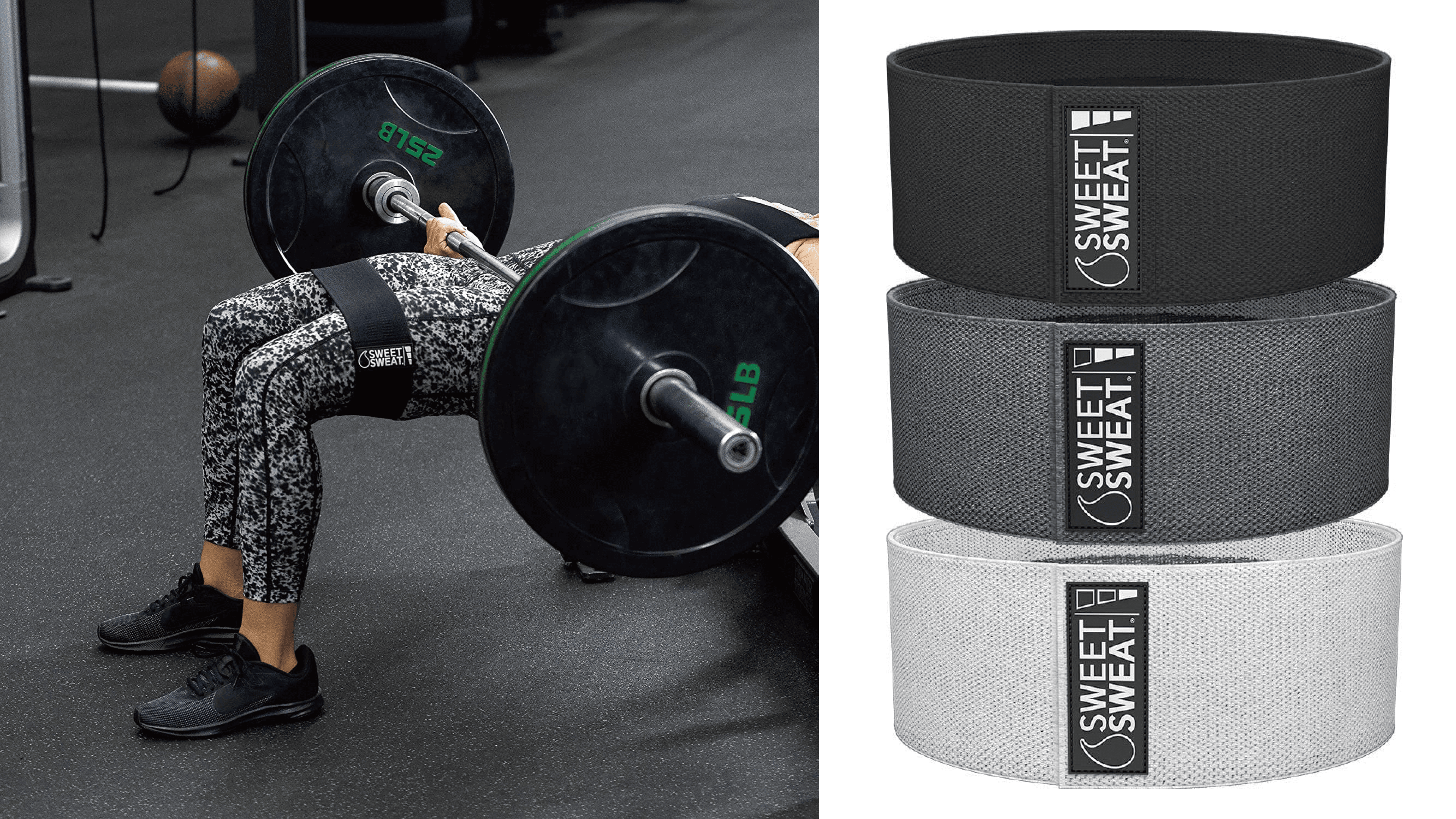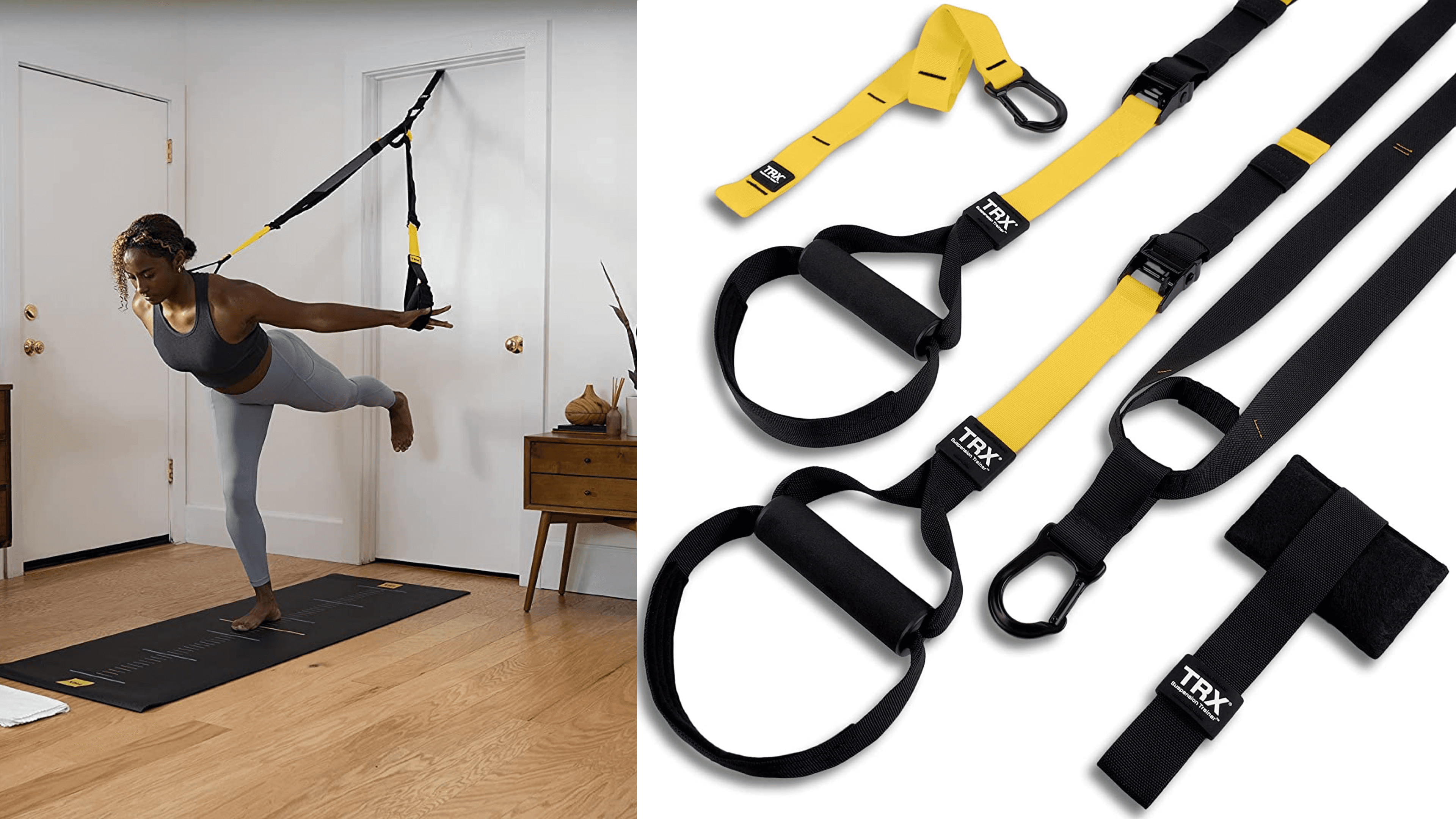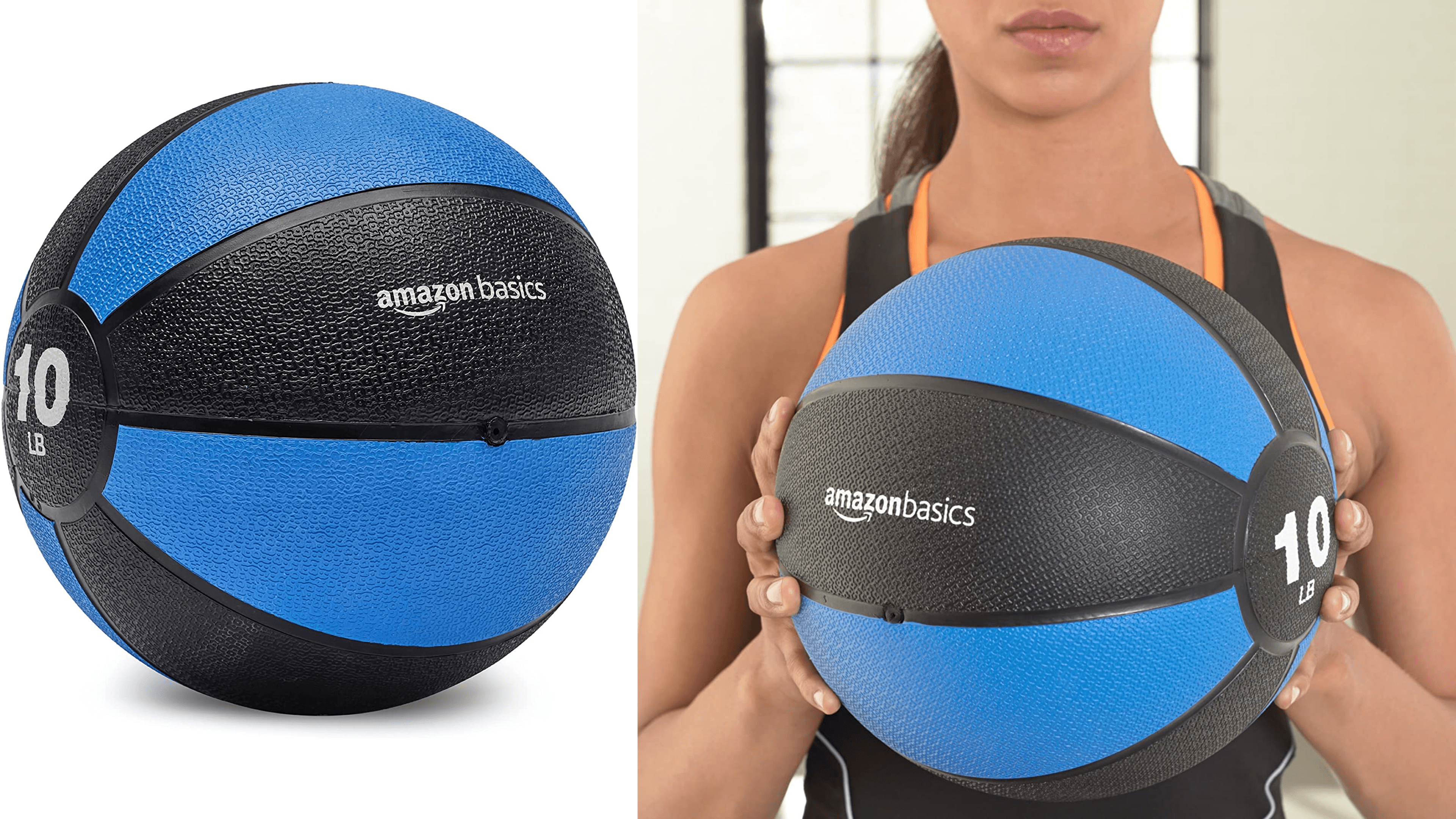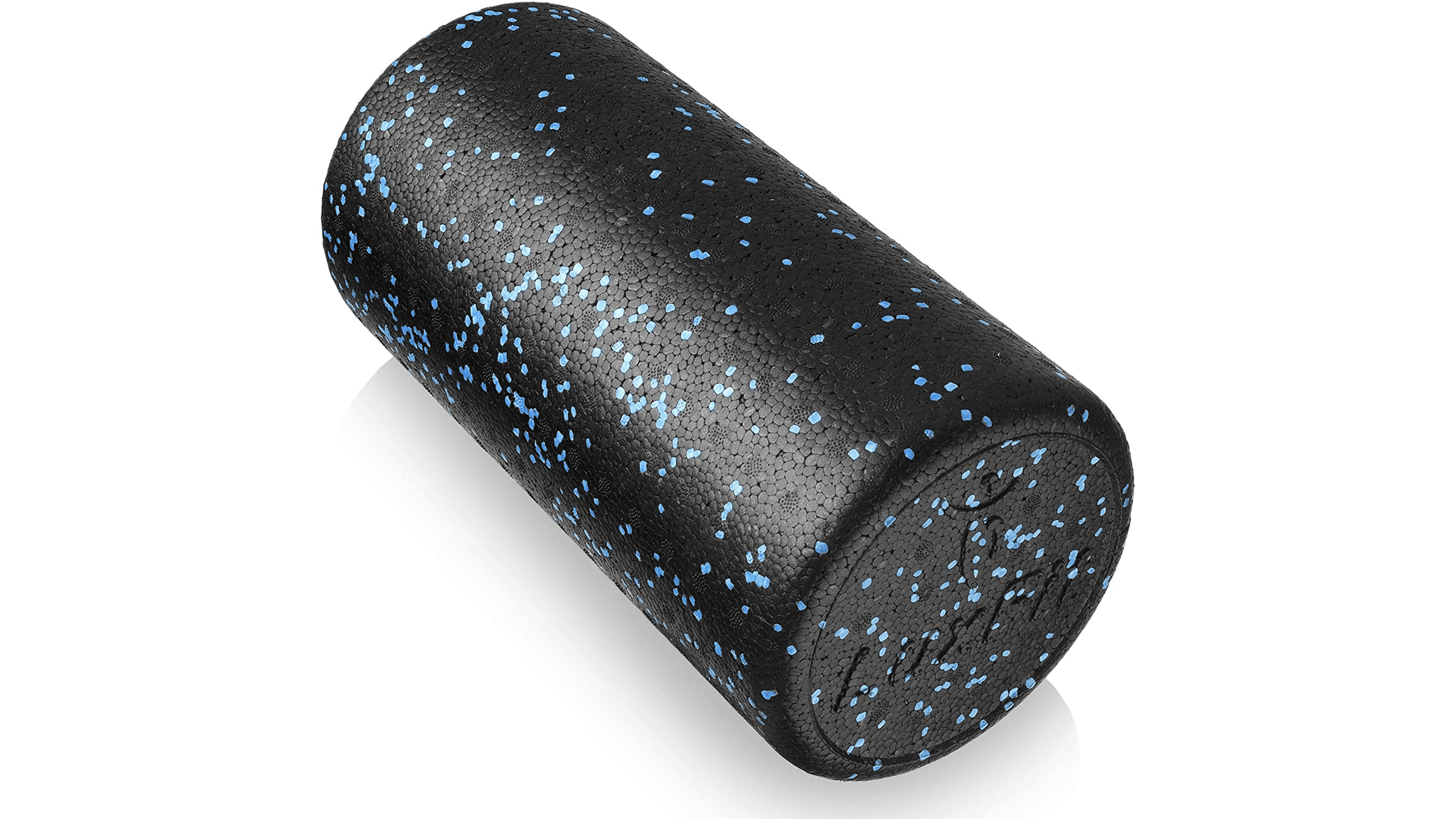Figuring out what workout style best suits you and your body can be a daunting task. If you’re newer to the world of fitness routines, you might be confused with where to start and what equipment to use. With COVID-19 variants springing up left and right (or, you know, every few months), you may not even feel comfortable visiting a local gym. And that’s why we’re here. Enter: a personalized gym of the at-home variety. That’s right — you spent months zhuzhing your WFH space and now you can turn your attention to working up a sweat from the comfort of your living room. Convenience at its finest.
To ensure your fitness journey is set up for success, we spoke to New York-based, ACE-certified personal trainer Miriam Fried, founder and head trainer of MF Strong. We asked lots of questions, like how to warm up properly, what are basic strength movements to familiarize yourself with, how to work out without weights, and so much more. Spoiler alert: There’s a way to get in a completely effective workout sans dumbbells.
Psst…If you’ve already got your fitness routine down to a science and just want some new product recs, keep scrolling. We’ve got lots of equipment to shop further down.
How should I warm up my body?
With movement. Static stretching is not for before your workout, it’s for after. If you’re just starting out, it’s best to think about the moves you’re about to perform. “Engage the muscles you’re going to use. I love a walkout because it hits your upper and lower body, plus your core,” Fried says.
On the treadmill. “It’s a fine warm-up, but not my preferred choice,” Fried says. Remember: It’s best to think about the muscles you’re going to engage later on. For example, if you’re looking to squat, starting with air squats is great.
For a minimum of five minutes. If you don’t have 15 minutes, that’s okay. In fact, Fried says five minutes is perfectly fine. “People have schedules and you have to be realistic.” Look at it this way: If you’re working out for 30 minutes total, a five minute warm-up is entirely sufficient.
Now onto muscle groups…
What if I’m looking to focus on my legs and booty?
Think about your basic movements. Like a squat (a knee-dominant movement), a deadlift (a hip-hinge), and a lunge (a unilateral movement). “Think of those as your three go-tos,” Fried says.
Realize you don’t have to add weights. Dumbbells aren’t necessary. Maybe you’re not ready to add them to the mix, and that’s okay. You can do the above movements using just your body weight. What’s more important is that you get comfortable with the movements themselves and focus on form.
If you wanna add weight, think about your reps. Fried suggests that to figure out how heavy your dumbbells should be, find something that feels challenging by rep eight. So if you’re doing 10 ten squats, you should feel like nine and ten are really a push. If you’re not even fatigued by 10, the weight is too light. If you can barely eke out 10, your weight is too heavy.
Try different things, like static isometric holds and controlling your tempo. So what does that mean exactly? “It means holding your movements or slowing down how fast you perform them to increase your time under tension,” Fried says. If you’re lunging, hold when you’re at the bottom of your lunge and count to 10. That hold will produce a burn and make your muscles work even harder.
Products we highly rec for lower-body workouts:

A set of fabric resistance bands that won’t slide or twist…
Unlike rubber bands, these will stay put. So while you’re attempting a squat or lunge, the band won’t roll or ride up your thighs. They’re also excellent for things like a crab walk. Adding a resistance band will make anything seem harder. Your legs will be fighting against the fabric to stay in place, so your muscles will be working extra hard. Sorry in advance for the burn you’re about to feel. ($21.95/3 pack, Amazon)

Neoprene-coated dumbbells that include 3-pound, 5-pound, and 8-pound weights…
What’s great about this set is that you’ll also get a stand. Heavier dumbbells are available too, so pick the weight that is best for your body and fitness goals. Consider them an at-home gym staple. They’re incredibly versatile and will come in handy with upper- and lower-body workouts, so you really can’t go wrong with ’em. If you’re tight on space, try a pair of adjustable dumbbells. ({{dynamicPrice}}, Amazon)

An adjustable kettlebell that goes up to 40 pounds…
Each iron plate weighs 5 pounds, so the more you add, the heavier it gets. The bottom is flat so you can rest it down without fear of tipping. Like dumbbells, kettlebells can be used to work your arms, for swings, abs, and so much more. If you’re looking for a lighter option, check out this kettlebell. ({{dynamicPrice}}, Amazon)
What if I’m looking to target my arms and shoulders?
Reference the basics (again). “Think about your back, chest, and shoulders. So, for example, a single-arm row, a pushup, and a shoulder press,” says Fried. Working your upper body entails pushing and pulling, so think of anything that pushes something away from your body or pulls something toward you.
Body weight can be really effective. If you think you absolutely need weights to fatigue your upper body, that’s false. Ever heard of a pull-up? You can challenge yourself with things around your home. Fried suggests triceps dips from the edge of a chair or, if you want to add some weight, bicep curls with the heaviest cans in your pantry.
Modify movements if you’re just starting out. No one expects you to whip out five pull-ups in a row with no experience. Modifications are always possible. Fried strongly suggests starting with one and then working your way up to the full-blown thing. If your goal is an unassisted pull-up, start with negative pull-ups or banded pull-ups.
Products to work your upper body:

Non-loop resistance bands at different levels…
The more tension, the harder a movement will be. You can rest them underneath your feet and use ‘em for rows, curls, and flys. They’re easy to store, so if you don’t have room for dumbbells, this is a great hack. They also come in three different lengths to accommodate different heights. ($6.99+/3 pack, Amazon)

A TRX suspension system that’s all about body weight…
It can be used by those of all fitness levels and can provide a total body workout in as little as 15 minutes. The best thing about it: You won’t need extra dumbbells or heavy equipment. It can be set up indoors or outdoors, depending on what space you’ve transformed into a gym. It comes with a guide on getting started and access to the TRX training club app. There are tons of videos you can watch to get into the world of TRX — it’s really way more beginner-friendly than you may think. ({{dynamicPrice}}, Amazon)
And how exactly can I target my abs?
By working your entire core. So those traditional crunches on the floor most likely aren’t cutting it. “The best way to work your core is to utilize it in the way that it functions on a day-to-day basis. Your core’s main purpose is to resist rotation. So think of things that are anti-rotation movements, like planks,” Fried says.
Actually, rotations work well too. “Anti-rotation movements are great, but on the opposite end of the spectrum, rotating your core is also a great workout. You can incorporate bands to hold rotations and increase your time under tension.”
Pay attention to your lower back. If a movement starts to hurt your lower back, something isn’t right. Think about bringing your belly button to your spine in order to brace your core and engage the entire thing. Your lower back should stay touching the floor during your entire ab routine. When your lower back lifts and your spine arches, that's when you can start to feel pain.
What to keep on hand for abs:

A medicine ball that can add weight to exercises…
Ideal for things like Russian twists and dead bugs (an actual move, trust us), medicine balls are easy to hold while you focus on your core. They come in various weights and help you keep your core engaged while you twist. ({{dynamicPrice}}, Amazon)

A bigger exercise ball for balance and stability…
These non-slip balls are challenging to plank on. They force you to stabilize even if your body is shaking. We’ve also used them during dead-bug exercises and find that they really can increase tension. ($21.99+, Amazon)
Now how do I cool down after a workout?
With static stretching. Unlike your warm-up, a cool-down consists of holding stretches for a period of time. “You don’t need to be moving your body anymore,” says Fried, “Now it’s okay to sit down and go through a series of stretches.”
Be realistic with your timing. Again, much like your pre-workout routine, you may not have a full 15 or 20 minutes to devote to stretching. Fried suggests spending five minutes once you’re done working out. However, if you’ve got some time later on while watching TV, finish out some stretches then. “Put on an episode of your favorite show and dedicate that time to loosening up your body. It’s a more productive way to spend your time than sitting on the couch.”
Try foam rolling. Foam rollers are pretty cheap and can help you target sore muscles. “I highly suggest foam rolling. It can be a bit uncomfortable, but focus on the muscles you worked that day. If you worked your glutes, roll your glutes out,” she says.
Your cool-down go-to:

A durable foam roller that’ll last you a very long time…
This one is dense, so it won’t dent under the weight of your body. And it won’t snap in two or collapse either. It’s just your handy, sturdy foam roller you can use post workout. Or while you’re binging a series. ($9.99+, Amazon)
What are some other things I should know?
Don’t put pressure on yourself to work out five days a week. Don’t put pressure on yourself at all, really. “One day is better than zero and two days is better than one…you get the idea,” Fried says, “I aim to tell newer clients that three days a week is an excellent goal. Three strength workouts a week is completely suitable.”
You don’t have to always target one muscle group. “You can have days that are full body workouts,” she says. “You can have days when you’re just focusing on lower body or upper body. You can even go more niche than that and just focus on one area like your glutes. It’s up to you.”
Rest days are incredibly important. “You can’t grow muscle without recovery days,” Fried says. “When you strength train, you’re literally tearing the muscle and it needs rest to rebuild. Recovery days are part of the fitness process.”
Women are allowed to be strong too. “So much about fitness is geared toward men. Getting stronger and putting on muscle can be intimidating for a lot of people. In reality, women should strength train since there are many benefits. And to be clear, being strong does not have to equal being able to deadlift 250 pounds. It can mean you in your bedroom doing squats with a band."
Take your time and listen to your body. Confidence in working out isn’t created overnight. Go at your own pace and listen to your body. If something doesn’t feel right — stop.
And finally, some at-home gym products that are always useful:

A yoga mat so you’ve got some padding between you and the floor…
Planking on wood can be rough on your skin. And some rugs are just too soft to get balanced footing. A yoga mat makes everything easier. You’ll be able to get a good, stable grip as you go through your workout. And no, it’s not just for yoga. We use a mat for strength workouts too. Psst…if you’re looking for something a bit more budget-friendly, check out this option. ($100, Alo Yoga)

A gym starter kit that’ll save you some cash…
You’ll get five rubber resistance bands, a jump rope, sliding discs (great for abs), and a bag to make storage way easier. If you’re looking to avoid dumbbells, this is an ideal kit to keep in your home. It’s more than enough for an effective workout — and the price tag is darn reasonable. ($20.15, Target)
If you buy anything from this article, theSkimm may get something in return. Oh, and if something’s out of stock, oops, it was there (and all prices were accurate) when we published. Thanks.
Live Smarter
Sign up for the Daily Skimm email newsletter. Delivered to your inbox every morning and prepares you for your day in minutes.




